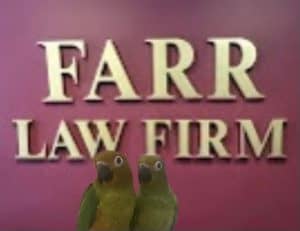 Dear Kiwi and Mango,
Dear Kiwi and Mango,
My wife and I are in the process of doing our estate planning documents. One decision we have yet to make is whether we should tell our heirs what they should expect to inherit, in advance. What are some things we should consider in making our decision about this?
Thanks for your help!
Talon Themm
—-
Dear Talon,
According to Roy Williams and Vic Preisser, two of the founders of the Institute for Preparing Heirs, there’s a 70 percent failure rate when transferring family wealth from one generation to another. Many of these failures occur because families don’t do enough to prepare their heirs for the handoff.
Being unprepared to inherit money can be a cause for emotional, mental and financial turmoil in families. However, most parents fuel rather than prevent these problems. They think: “I’d rather not talk about it” or “We’ll set up a time to chat about it later.” This is why one of the most common conflicts among family members arises when it involves an estate that hasn’t been previously discussed.
Generally speaking, what you should tell your adult children about your estate planning should be guided by your family’s values and by each child’s ability to handle the information. Here are some things to consider:
- Making things easier: Letting your adult children know about your estate plan may make things easier for them after your death. At a time when they may be feeling sad and stressed, knowing the path they need to follow may comfort them.
- If your plan is unequal between your children, it may be best to let them know beforehand so that their expectations are set. Your children may be okay that one child inherits the family vacation home, but that news may be better coming when you are alive than after your death.
- You don’t need to divulge all the details: Just because you tell your children about your estate plan does not mean that you necessarily need to tell them how much they will inherit. You can certainly tell them about the plan without divulging dollar amounts, though divulging rough dollar amounts is often a good idea so long as your children are grown and knowing what they stand to inherit will not interfere with their life choices and career ambitions.
- Tell your children about your estate planning attorney and any accountant and/or financial advisor you work with to help them know who they can reach out to about your estate and to help them feel grounded at an unsettling time.
- Help them be able to plan ahead: Keep in mind that letting your children know about their inheritance can help them with their financial and estate planning. On the other hand, some think they will inherit more than they will. Giving a child extra time to put away assets for their own retirement instead of relying on their inheritance may be critical for them in some situations.
- If one child has trouble handling money: In many families with grown children, there is one child who has issues involving money. This could be the result of his or her bad habits or perhaps a physical, mental or emotional challenge. In that case, you might need to have a separate conversation with him or her and create a special arrangement, almost always involving keeping their inheritance in trust, that will work for these circumstances.
- If you will be leaving assets to children unequally, you should probably tell them in advance. It might make your relationship with that child awkward, but that may be better than souring the relationship between your children after your death.
- If you have no spouse or children, be wary of people who may try to take advantage of you. The kindness of strangers can be very appealing if you don’t have anyone else in your life to help you as you age. This type of kindness can of course be completely genuine, but be aware that such kindness may be a ruse to gain your trust and then suggest that you do your estate planning, with the expectation that you will be leaving your money to these former strangers.
Keeping these things in mind, it is important to do what is best for you and your family. Hope this is helpful!
Kiwi and Mango
Print This Page











